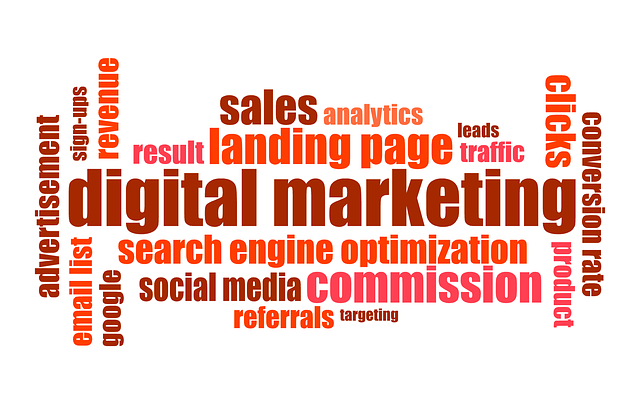In today's digital era, AI compliance automation revolutionizes commercial real estate development by simplifying complex zoning processes for large-scale projects through algorithms and machine learning. AI tools analyze government data, historical records, and market trends to offer valuable insights, enabling informed decision-making and optimizing compliance strategies. This technology streamlines regulatory checks, reduces delays, and minimizes costly mistakes, making it a crucial asset for developers. By focusing on strategic planning, AI ensures responsible urban development while navigating ever-changing regulations, fostering efficient and informed decision-making. Implementing AI requires a strategic approach to ethical considerations and data privacy, utilizing GIS, satellite imagery, and regulatory documents with robust validation techniques to ensure accuracy and integrity in development decisions.
In today’s digital era, AI is transforming commercial real estate development. This article explores the transformative power of AI automation in streamlining zoning compliance for large-scale projects, highlighting its benefits in identifying and mitigating regulatory risks for developers. We delve into best practices for implementing AI solutions while ensuring ethical and compliant development decisions, positioning AI as a game-changer in urban planning. Discover how AI compliance automation is revolutionizing the landscape for ambitious developments worldwide.
- AI Automation: Streamlining Commercial Real Estate Zoning Compliance for Large-Scale Projects
- The Benefits of AI in Identifying and Mitigating Regulatory Risks for Developers
- Best Practices for Implementing AI Solutions to Ensure Ethical and Compliant Development Decisions
AI Automation: Streamlining Commercial Real Estate Zoning Compliance for Large-Scale Projects

In today’s digital era, AI compliance automation is revolutionizing the landscape of commercial real estate development. By leveraging advanced algorithms and machine learning capabilities, developers can streamline zoning compliance processes for large-scale projects, ensuring swift and accurate assessments. This technology enables efficient navigation through complex regulatory frameworks, identifying potential issues early in the planning stage.
AI tools can analyze vast amounts of data from various sources, including government databases, historical project records, and real-time market trends, to provide valuable insights. These insights empower developers to make informed decisions, reduce delays caused by manual errors, and optimize their projects’ zoning compliance strategies. As a result, AI automation becomes an indispensable asset for managing the intricate web of regulations that govern commercial real estate development.
The Benefits of AI in Identifying and Mitigating Regulatory Risks for Developers

The integration of AI in commercial real estate development offers significant advantages, particularly when it comes to navigating regulatory landscapes and ensuring compliance. AI’s ability to process vast amounts of data quickly enables developers to identify potential zoning and permitting issues early in the project lifecycle. By automating compliance checks, AI can scan through complex regulations, historical data, and local guidelines, flagging areas that may require additional consideration or expert review. This proactive approach minimizes delays and costly mistakes often associated with traditional manual processes.
For large-scale developments, AI compliance automation is a game-changer. It streamlines the regulatory approval process, allowing developers to focus on strategic planning and investment opportunities. With AI, developers can make informed decisions about site selection, design adjustments, and marketing strategies while confidently addressing zoning compliance concerns. This technology ensures that projects stay on track, adhering to ever-changing regulations, thus fostering efficient and responsible urban development.
Best Practices for Implementing AI Solutions to Ensure Ethical and Compliant Development Decisions

Implementing AI solutions in commercial real estate development requires a keen focus on ethical considerations and regulatory compliance. To ensure responsible practices, developers should adopt best practices that prioritize data privacy, transparency, and fairness. This includes obtaining informed consent for data collection, ensuring algorithms are explainable, and regularly auditing AI models to identify and mitigate potential biases.
AI automation can streamline the zoning compliance process for large-scale developments by efficiently analyzing vast amounts of data from various sources, including geographic information systems (GIS), satellite imagery, and local regulatory documents. However, developers must employ robust data validation techniques to prevent errors and maintain accuracy. Additionally, staying abreast of evolving regulations and industry standards is crucial to adapt AI solutions accordingly, ensuring ongoing compliance and the integrity of development decisions.
AI has the potential to revolutionize commercial real estate zoning compliance, especially in managing large-scale projects. By automating the process, developers can significantly reduce regulatory risks and streamline their operations. The benefits are clear: faster decision-making, improved accuracy, and a more efficient development process. However, as AI solutions are implemented, it’s crucial to adhere to ethical standards and ensure fair, transparent practices. With the right approach, AI compliance automation can become a powerful tool for developers, fostering sustainable and compliant large-scale developments.
